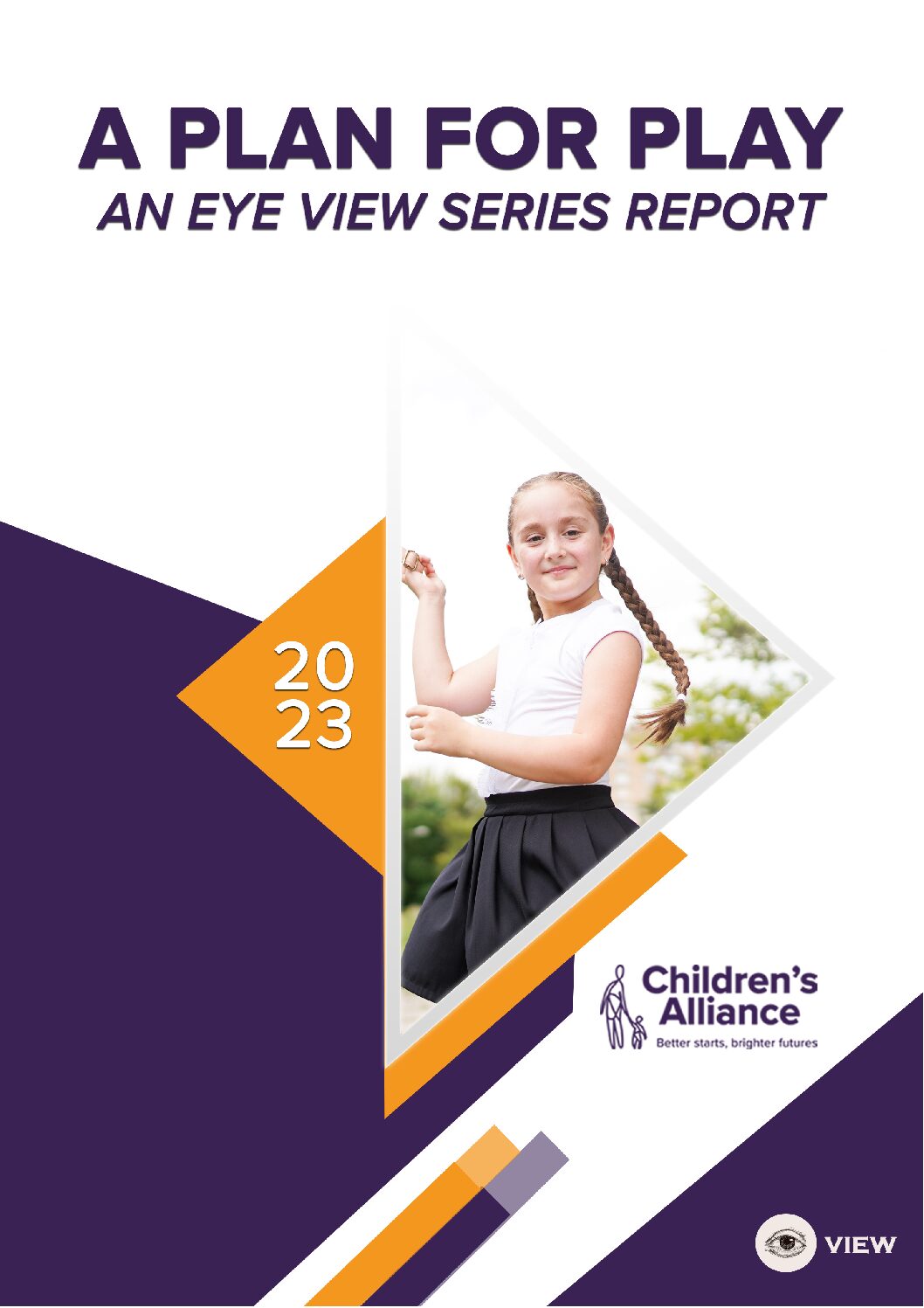According to The Children’s Alliance in a new Report, facilitating children’s play is a ‘win-win’ for post-pandemic UK without a hefty price tag for the Government.
We were pleased to contribute once again to these important Eye View Series reports – this time, commissioned by OPAL. You can read the full report here: A PLAN FOR PLAY FINAL ILLUSTRATED
Tamsin Brewis, Director of The Children’s Alliance said:
‘Play as a nourishing, necessary and joyful activity; enshrined by the United Nations is the birthright of every child. It ‘levels up’ health and wellbeing life chances for children wherever they live and whatever their family income.
During the pandemic, children and young people from less advantageous backgrounds in particular, paid the price for being cooped up and this inexpensive ‘early intervention’ measure could save burgeoning health and economic costs and tap into the potential of a new generation.’
‘A Plan or Play’ calls for:
· The Department for Education (DfE) to require and support all primary range schools to devise a school plan for play, based on proven best practice and playwork principles; subject to Ofsted Inspection
· Government to revise Initial Teacher Training (ITT) and Continuous Professional Development (CPD) content, equipping all teachers to plan play-based learning for children in the early years and beyond with all staff overseeing playtimes receiving training in the theory and practice of playwork in schools
· Government to provide ring-fenced funding of play enabling all UK local authorities to afford every child the opportunity to play in a local, safe, high-quality playground
· All children to be enabled to enjoy the right to play when sick (UNCR recommendation 2013 and NICE 2021) with the recommendations of the NHS England Taskforce and children’s charity Starlight (https://www.starlight.org.uk/play-in-hospital-report-2022) endorsed in full
· Play to be included as a protected characteristic within the terms of the 2010 Equality Act; providing statutory recognition of its essential contribution to the development of all people during the crucial period of childhood.
The report was sponsored by Outdoor Play and Learning (OPAL https://outdoorplayandlearning.org.uk) a Not-For-Profit organisation that has proved in over 1,000 UK primary schools that the behavioural, academic,
health and parental involvement benefits have far outweighed the relatively small ‘start-up’ costs of developing ‘plans for play.’
Founder and Director of OPAL, Michael Follett commended the Report to the Government adding:
‘UK primary schools are wasting play times, staff time and school grounds valuable development opportunities by failing to have a plan for play.
‘Our work in over 1,000 primary schools has demonstrated that a planned approach to play is highly effective at improving outcomes for children and is inclusive, fun and low cost. I cannot understand why any school would fail to plan for 20% of their delivery.’
Over-cautious adult fears of ‘stranger danger’ are masking the danger inside the home: children’s increasing dependence on electronic screen devices with adverse consequences to their mental and physical health. The need for an Online Safety Bill is widely understood and now new research has shown that even spending as little as 76 extra minutes outside per day can halve the likelihood of short-sightedness (myopia) in childhood (https://news.sky.com/story/spending-time-outdoors-can-reduce-childrens-risk-of-developing-short-sightedness-12941434).
Fair and equal access to play in every school, hospital, park, children’s centre and recreation space opens the closed circle of inequality and sets every child everywhere post-pandemic on a path to health, wellbeing and productivity.
As we cope with the cost of living – we can’t afford NOT to have ‘A Plan for Play.’
